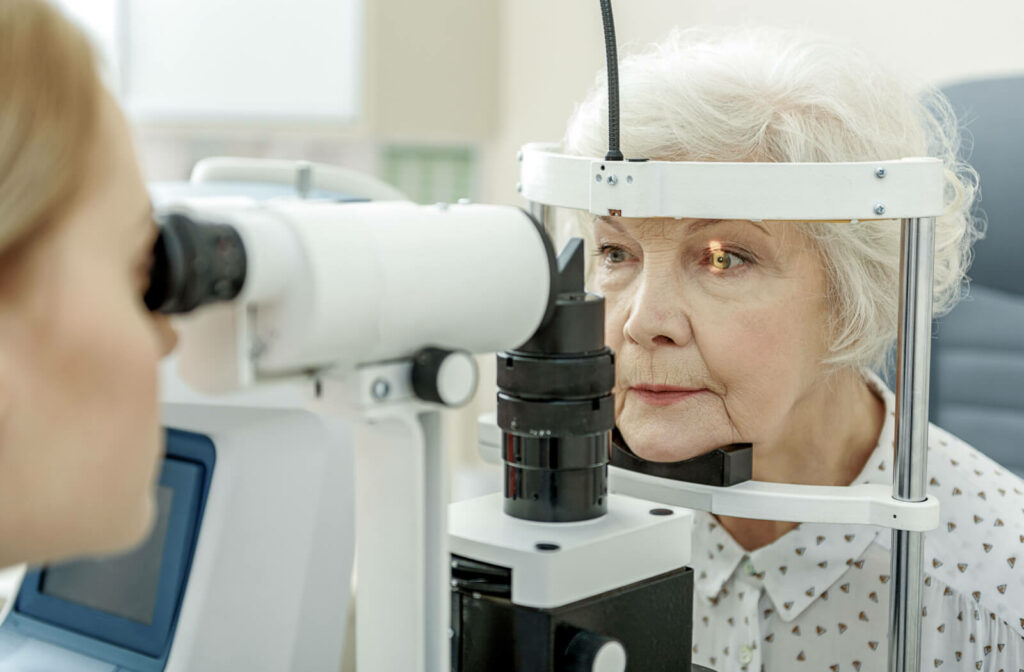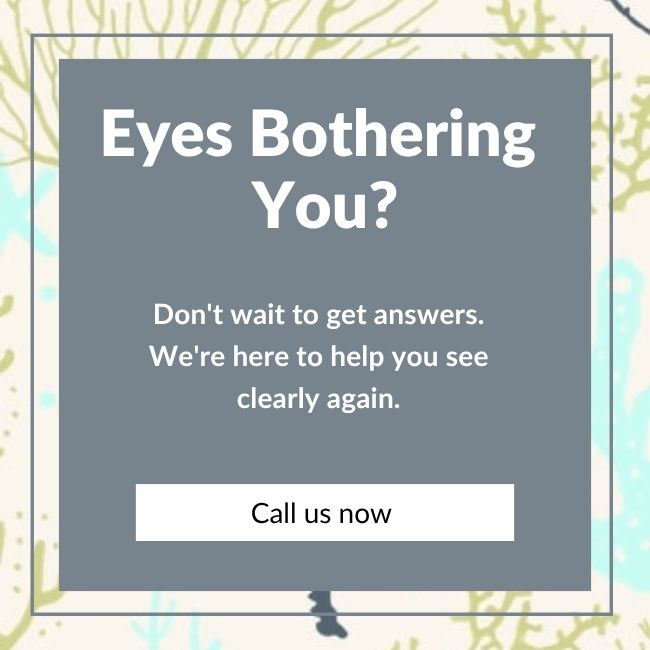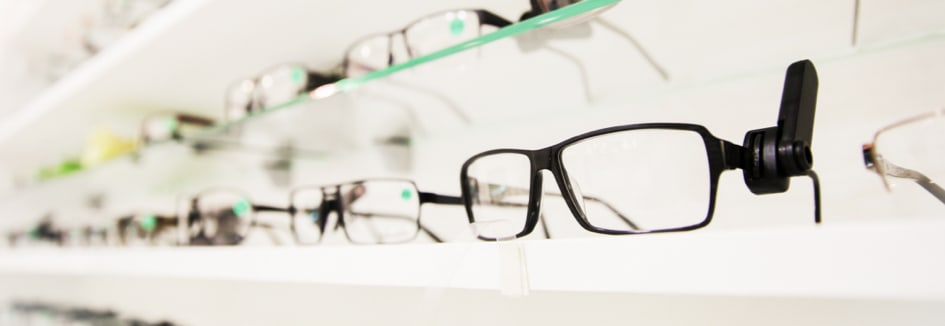For those of us with family members who have been diagnosed with glaucoma, one of the questions we may ask ourselves is what our level of risk is for the condition. It can be difficult to answer this question without speaking to an eye doctor.
Glaucoma can be hereditary, as those with a family history of the disease may have a higher chance of developing it. However, there are many possible causes of glaucoma. It’s important to be aware of your risk and have regular, comprehensive eye exams to protect yourself against glaucoma and other eye diseases.
Understanding Glaucoma & Its Symptoms
Glaucoma refers to a group of eye diseases that damage the optic nerve and can lead to severe vision loss or even blindness. While it can affect individuals of all ages, it tends to be most common in those over the age of 60. The disease is often referred to as the “silent thief of sight” because it can go unnoticed for a long time, gradually impairing vision without causing pain.
The 2 most common types of glaucoma are open-angle glaucoma and angle-closure glaucoma.
- Open-angle glaucoma (also known as wide-angle glaucoma) occurs when the optic nerve is damaged slowly, often without obvious signs. The exact cause of open-angle glaucoma is unclear, though some theories suggest it happens when the eye’s drainage system becomes less efficient over time.
- Angle-closure glaucoma occurs when your eye doesn’t drain due to the drain space between your iris and cornea becoming too narrow. This type of glaucoma comes on quickly and is considered a medical emergency.
There are other potential forms of glaucoma, too. Among these are secondary glaucoma, normal tension glaucoma, and pigmentary glaucoma.
Glaucoma usually begins without noticeable symptoms. However, some symptoms you can experience include:
- Vision loss
- Blurriness
- Eye pain
- Redness
- Halos around lights
If left untreated, glaucoma can permanently damage your eyesight, so it’s essential to see a doctor as soon as symptoms occur.
How Is Glaucoma Diagnosed & Monitored?
Diagnosing glaucoma typically involves a comprehensive eye exam that includes measuring intraocular pressure, assessing the optic nerve, and examining the visual field. If any abnormalities or signs of damage are found, additional tests may be ordered, such as a gonioscopy.
It’s important to get regular eye exams, especially if you’re at risk for glaucoma due to factors like age, family history, or certain medical conditions. Early detection and treatment can help preserve your vision and prevent further damage.
Genetic Factors for Glaucoma
Research has shown that genetics can play a role in the development of glaucoma, meaning that those with a family history of the disease have a higher likelihood of developing it themselves.
However, family history is not the only risk factor for glaucoma, and if you do have a family member with glaucoma, it’s not a guarantee that you will get glaucoma. Those with a family history of glaucoma can take preventive measures to reduce their risk of vision loss, like getting a comprehensive eye exam at least every 2 years.
Risk Factors for Developing Glaucoma
Knowing the risk factors for developing glaucoma can help individuals take proactive steps to protect their eye health.
Major risk factors for developing glaucoma can include:
- Being over the age of 60
- Family history of glaucoma
- High eye pressure
- Heart disease
- Thin corneas
- Diabetes
- High blood pressure
- History of steroid use
- Physical injuries to the eye
With regular eye exams, you can discuss any potential concerns with an eye care professional and have the opportunity to detect and treat glaucoma early.
Treatments & Medications for Glaucoma
Although glaucoma can lead to vision loss if left untreated, there are a variety of treatments and medications available to help manage the disease and slow down its progression.
While there is no known cure for glaucoma, early detection and treatment can help preserve your vision and quality of life. If you have glaucoma, it’s important to start treatment as soon as possible.
Eye doctors have a variety of treatment options for glaucoma, including:
- Prescription eye drops—the most common treatment. There are a range of eye drops you can use to lower the pressure in your eye and prevent damage to your optic nerve.
- Laser treatment—to lower your eye pressure, doctors can use lasers to help the fluid drain out of your eye. It’s a simple in-office procedure your eye doctor may perform.
- Surgery—an option if medicines and laser treatment don’t work. There are several types of surgery that can help the fluid drain out of your eye.
With proper management, many people with glaucoma are able to maintain their eyesight and continue to enjoy a high quality of life.
Prevention Tips for Maintaining Eye Health
Our eyes are precious, and we use them almost every moment of the day. That’s why it’s important to take care of them as best we can. Luckily, there are plenty of things we can do to prevent eye problems and maintain good eye health.
- Eat an eye-healthy diet. Include foods rich in essential fatty acids, vitamins, and antioxidants, like salmon, spinach, and blueberries.
- Protect your eyes from harmful UV rays by wearing sunglasses that block 100% of UVA and UVB radiation.
- Don’t forget to give your eyes a break by taking regular screen breaks and practicing the 20-20-20 rule—every 20 minutes, look away from the screen for 20 seconds and focus on something approximately 20 feet away.

The Next Step
Early detection and treatment of glaucoma is essential in order to prevent vision loss in those affected by the disease. It is important for those at risk for developing glaucoma, age 60 and older, as well as individuals with a family history, to get regular eye exams in order to detect the disease early on.
If you believe you may be at risk for glaucoma or have any questions about the condition, contact us at Rock optiX today for a comprehensive eye exam.






















